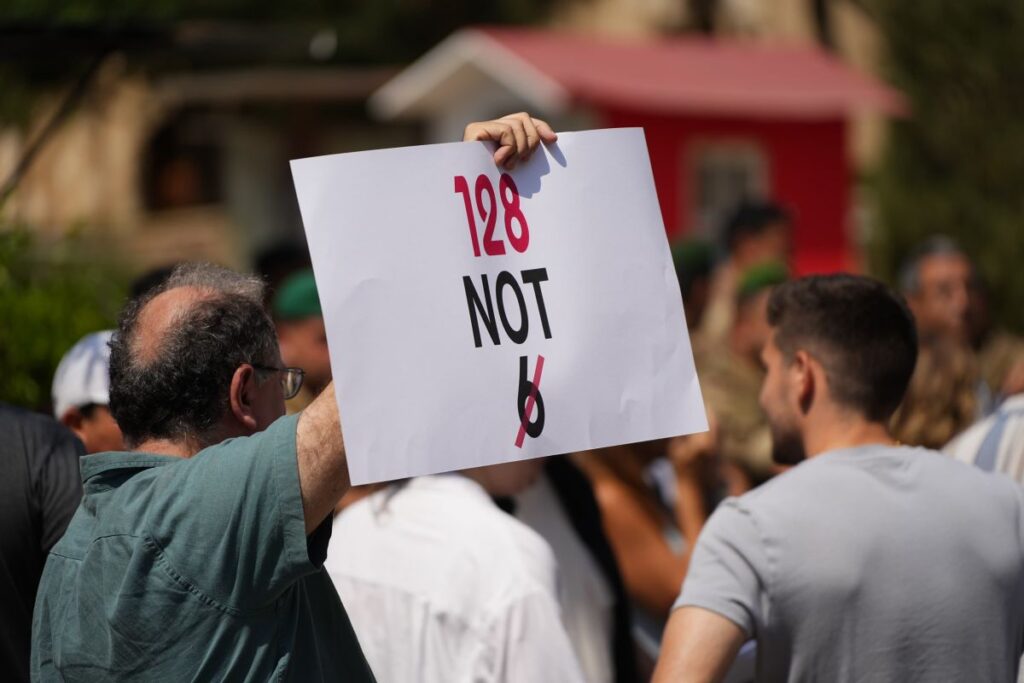
National News Agency – The Lebanese American Coordinating Committee (LACC) expressed its “astonishment and dismay at the insistence on applying Article 112 of Electoral Law 44/2017, despite its unconstitutionality,” and at the deliberate “obstruction of placing it on the agenda of the Parliament’s general assembly.” The Committee expressed hope that the Minister of Interior, and the heads of the Constitutional Council and the Supreme Judicial Council, will play their roles in “putting an end to this constitutional violation, within the framework of constitutional institutions and through the necessary procedures, as Lebanon stands on the wings of both residents and expatriates without discrimination.”
The statement continued:
“In the context of following up on the troubling and unconstitutional situation contained in Article 122 of the Electoral Law, the Lebanese American Coordinating Committee (LACC) — which includes: the American Lebanese Policy Institute – PAC (ALPI-PAC), American Friends of Lebanon (AFL), Lebanese American Renaissance Partnership (LARP), Lebanese For Lebanon Foundation (LFLF), Lebanese Information Center (LIC), the World Lebanese Cultural Union (WLCU), along with the Civic Influence Hub (CIH) as the Committee’s advisory organization — sent a letter to Constitutional Council President Judge Tanios Mechleb, Supreme Judicial Council President Judge Suheil Abboud, and Minister of Interior and Municipalities Brig. Gen. Ahmad Hajjar.”
In its letter, the Committee stated:
“First of all, on behalf of the Lebanese American Coordinating Committee (LACC), we commend your efforts to uphold the Lebanese Constitution, which constitutes the cornerstone of a state governed by the rule of law, with full sovereignty, where its sons and daughters — both residents and expatriates — enjoy equal civil and political rights without reduction or discrimination.
In this context, we in the LACC follow with astonishment and dismay the insistence on applying Article 112 of Electoral Law 44/2017, despite its violation of the Constitution, as well as the deliberate obstruction of placing it on the Parliament’s general assembly agenda — in contradiction to the founding principles of Lebanon’s parliamentary democratic system.”
The letter continued:
“Article 112 of the Electoral Law, under the title ‘Candidates from Non-Residents,’ stipulates the allocation of six seats for non-resident voters, distributed among religious sects equally between Christians and Muslims, and equally across the six continents — which is suspicious.
This article contradicts Article 24 of the Constitution, which stipulates the distribution of parliamentary seats equally between Christians and Muslims, proportionally among the sects of each group, and proportionally among the regions. The term ‘regions’ refers to those that make up the Lebanese state as defined by Article 1 of the Constitution. Therefore, it is not permissible to allocate parliamentary seats to regions outside these borders, distributed across continents around the world. Non-residents exercise their voting rights in their places of residence for candidates contesting seats allocated to the districts where their civil registry is recorded in Lebanon.”
The Committee added:
“Granting non-residents the right to choose between voting in the location of their civil registry or their place of residence is required under the principle of equality between Lebanese citizens, and therefore between non-residents and residents. Thus, granting both residents and non-residents the right to choose between voting in their civil registry location or their place of residence is a constitutional right, and denying them this choice constitutes a violation of the principle of equality and, therefore, a constitutional violation.”
The statement concluded:
“Based on the above, we hope that you, as a competent authority, will put an end to this constitutional violation, within the framework of constitutional institutions and through the necessary procedures, as Lebanon stands on the wings of both residents and expatriates without discrimination.”
